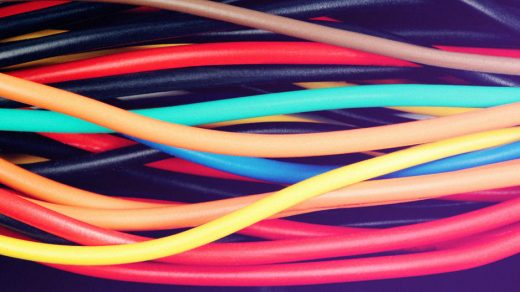Three Tips From A Neuroscientist On How To Be The Most Productive Multitasker
On the surface, Adam Gazzaley isn’t a likely suspect to say Americans multitask too much. A neuroscientist at the University of California, San Francisco, Gazzaley runs a lab dedicated to the latest and greatest in neurodiagnostics, has a research project with Mickey Hart of the Grateful Dead, and researches video games that build cognitive abilities. But in his new book, Gazzaley says just that: Human brains aren’t built to handle constant multitasking on tech devices, and the constant task-switching of modern work life has negative effects.
Gazzaley’s new book, cowritten with psychologist Larry D. Rosen of California State University, Dominguez Hills, is called The Distracted Mind: Ancient Brains in a High-Tech World. In it, the two detail strategies anyone can use to mitigate the effects of multitasking and find a way to juggle the demands of white-collar office culture today—such as checking your work email when you’re home at night or working on thought-intensive projects in a noisy, chaotic open office—with the need of the human brain to center and focus.
When I read the review copy of the book at home after work, I realized my work habits were exactly as he described. I was reading while doing everything from watching HBO’s Westworld to sifting through my email inbox after a particularly chaotic workday. It turns out I have a very bad case of distracted mind.
When I spoke with Gazzaley, though, he had an encouraging message: There are things we can do to become more focused at work—and we aren’t necessarily doomed to a sea of push notifications and endless reply-all email chains.
Here are a few of Gazzaley’s best pieces of advice.
1. Know Your Limits
Gazzaley says it’s important to “understand that our brain has fundamental limitations” and that we need to limit clutter in our tech lives as a result. “Brilliant tech companies have created devices that are incredibly accessible—not only do they allow you to reach out to them all the time, but they also reach out to you,” he adds.
The neuroscientist recommends blocking out time to multitask when you have low-level tasks that require minimal attention, aren’t mission-critical, and are boring.
In order to minimize being overwhelmed, he recommends limiting yourself to one tab at a time in your web browser, quitting your email program when doing important work, and turning your phone to “airplane” mode when it is time to focus.
2. Take Breaks
Gazzaley recommends taking breaks while working on challenging tasks in order to refresh. As he explains it:
It’s kind of like interval training in fitness. A break doesn’t necessarily mean email, either, because that’s a whole chain of activity that could take you away from your task. Instead, consider light physical activity, exposure to nature, and different pathways to restoration like meditation and mindfulness exercises. That’s how I manage my distracted mind.
In addition, Gazzaley notes that long blocks of work without a break can lead to distracted minds.
3. Set Expectations
If your colleagues at work keep distracting you when you need to concentrate, Gazzaley says, it’s important to set expectations of when you’re available and unavailable to chat.
“I live in San Francisco, and a lot of my friends are in the tech industry, and I see the value in terms of interactivity,” Gazzaley explains. “It’s a benefit to slide over to a coworker and have a conversation. But when you have an assignment to complete, it becomes a distraction that can decrease performance.
“That’s why you need to set expectations, and do something like put a sign on your desk saying, ‘No Interruption, Period,’ or just communicate with colleagues to let them know you’re just shut down from 11-2,” he says. You can also wear noise performance headphones as a flag that you’re offline for communicating—that’s reasonable.
In the end, it all comes down to work culture. Both in his book and in conversation with me, Gazzaley noted that there’s now an expectation at many jobs that you communicate with colleagues while on vacation, or at home on night or weekends. It’s what he says contributes to “expectations of 24/7 accessibility and productivity.”
But, the neuroscientist adds, you need to add buffer time into your schedule for restoration and self-care in order to avoid fatigue and stress. Otherwise, you’ll perform worse at work, and the whole point of multitasking will be defeated.
Fast Company , Read Full Story
(42)














